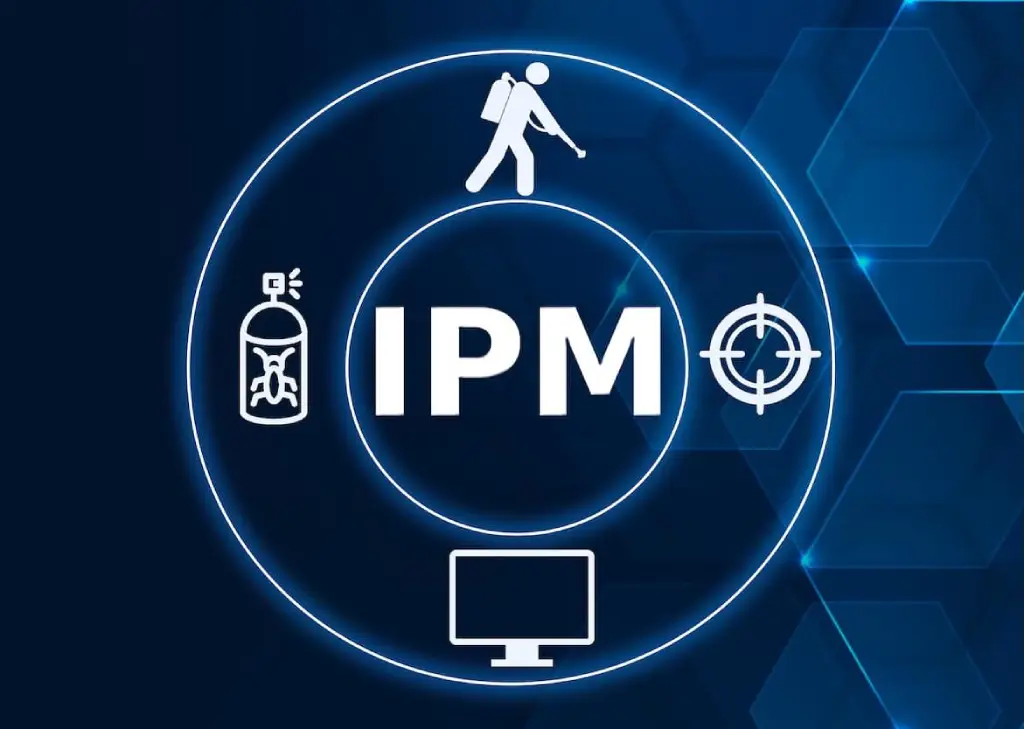
Did you know that businesses lose billions annually due to inefficient freight management? Streamlining logistics isn’t just a necessity; it’s pivotal for profitability and customer satisfaction.
Freight management is a vital component of modern logistics, ensuring goods are delivered efficiently and on time. It involves tasks such as choosing carriers, planning routes, and handling necessary paperwork. For instance, businesses that effectively manage freight can reduce logistics costs by up to 15% and improve customer satisfaction significantly. This article dives into what freight management entails, its key components, and the numerous benefits it offers.
Key Takeaways
- Freight management oversees the efficient delivery of goods through various transportation methods, ensuring reduced costs and high customer satisfaction.
- Critical aspects include choosing reliable carriers, optimizing delivery routes with advanced tools, and utilizing technologies like GPS and tracking systems for better visibility.
- Effective management of documentation and compliance, alongside leveraging data and analytics, plays a crucial role in avoiding delays, reducing costs, and enhancing operations.
Defining Freight Management
Freight management is the structured process of planning, organizing, and supervising the movement of goods to ensure timely and efficient delivery. This essential logistics function encompasses much more than transportation; it involves managing supplier relationships, inventory, and warehousing to streamline operations and reduce costs.
A key aspect of freight management is meeting customer expectations by using a strategic approach to transportation. Whether goods are moved by land, sea, or air, the goal is to ensure efficiency while maintaining quality. Freight brokers often play a crucial role in coordinating these efforts, acting as intermediaries between shippers and carriers.
By integrating these elements, freight management becomes a cornerstone of successful logistics, enhancing service levels and operational efficiency.
Key Components of Freight Management Systems
As logistics demands grow, robust freight management systems (FMS) have become indispensable for efficient operations. These systems serve as centralized platforms, enabling real-time data sharing and decision-making across stakeholders.
- Carrier Selection: Selecting the right carrier is foundational, involving a thorough evaluation of options based on cost, reliability, and transit times. Competitive tendering processes and careful consideration of hidden costs, such as fuel surcharges, are critical for informed decision-making.
- Technology and Tracking: Advanced technologies, such as GPS tracking and real-time monitoring tools, provide visibility into shipment progress, ensuring timely deliveries and proactive problem-solving.
- Documentation and Compliance: Accurate and comprehensive documentation, including bills of lading and shipping invoices, is vital to avoid delays and legal complications. Freight management systems simplify compliance by automating documentation processes and integrating regulatory standards.
By leveraging these components, businesses can streamline logistics, reduce costs, and improve overall efficiency.
Choosing the Right Carriers and Vendors
Selecting the right carriers and vendors is crucial for optimizing logistics operations and ensuring reliable service. This process starts with clearly identifying shipping requirements, such as transport methods, delivery timelines, and any specialized needs like refrigeration for perishable goods.
- Research and Evaluation: Assess carriers’ performance histories, including metrics for on-time deliveries and damage rates. A detailed review of their service capabilities ensures alignment with your business’s unique logistics needs.
- Comparison of Services: Compare offerings from various carriers to find the best fit for your operation. For example, specialized providers may offer tailored solutions for international shipping or specific industry requirements.
- Strategic Partnerships: For complex or large-scale logistics operations, partnering with third-party logistics providers (3PLs) can offer significant advantages. These partners bring expertise, advanced tools, and networks to enhance overall efficiency.
Carefully chosen carriers and vendors contribute to cost savings, operational reliability, and better customer satisfaction.
Route Optimization Techniques
Route optimization is a critical component of efficient freight management, enabling businesses to identify the most effective delivery routes while minimizing costs and environmental impact. By using advanced algorithms and GIS (Geographic Information Systems) technology, companies can account for variables such as fuel costs, road conditions, and traffic patterns.
- Leveraging Technology: GPS systems and real-time tracking tools provide immediate updates, allowing logistics teams to respond dynamically to delays or disruptions. These technologies help reroute shipments and adjust schedules to ensure timely deliveries.
- Sustainability Benefits: Optimizing routes not only reduces fuel consumption but also cuts down on carbon emissions, supporting sustainability goals. This is especially important for companies looking to align logistics with environmentally friendly practices.
- Software for Planning: Advanced route planning software integrates traffic patterns, delivery schedules, and the number of stops to create efficient delivery plans. Transportation Management Systems (TMS) play a pivotal role, offering real-time insights and data-driven recommendations.
Effective route optimization enhances delivery speed, reduces operational costs, and supports sustainable practices, making it a cornerstone of modern freight management.
Load Planning Strategies
Effective load planning ensures that cargo space is maximized, leading to more efficient transport operations and cost savings. By strategically organizing how goods are loaded, businesses can streamline both loading and unloading processes.
- Maximizing Cargo Space: Proper load planning reduces wasted space, allowing businesses to transport more goods in fewer trips. This not only saves on fuel and labor costs but also minimizes environmental impact.
- Improving Handling Efficiency: Strategically placed items within a vehicle can speed up unloading times, especially when goods are arranged based on delivery sequence. This reduces delays and enhances productivity at delivery points.
- Technology Integration: Load planning software leverages algorithms to suggest optimal cargo arrangements, ensuring that weight distribution and space utilization comply with safety and regulatory standards.
Efficient load planning not only reduces costs but also contributes to smoother logistics operations and faster delivery times.
Multimodal and Intermodal Transport
Multimodal and intermodal transportation strategies are essential for optimizing freight movement by leveraging multiple modes of transport, such as trucks, trains, ships, and airplanes. While they share similarities, these methods have distinct differences that cater to specific logistics needs.
- Multimodal Transport: This approach uses a single contract for the entire shipment journey, even though multiple modes of transportation are involved. It simplifies logistics management by offering a unified point of contact while maintaining efficiency and cost-effectiveness.
- Intermodal Transport: Intermodal transport involves separate contracts for each leg of the journey, allowing businesses to select the best carrier or mode for individual segments. This flexibility is ideal for complex supply chains requiring tailored solutions.
- Key Benefits:
- Cost Savings: Consolidating shipments across modes reduces overall expenses.
- Flexibility: Businesses can adjust plans quickly to mitigate delays or accommodate changing requirements.
- Sustainability: Using rail or sea transport for long-haul segments can significantly lower carbon emissions.
Coordinating multiple transportation modes requires meticulous planning and management, but the cost savings and improved efficiency make these strategies indispensable in modern freight management.
Documentation and Regulatory Compliance
Accurate documentation and strict adherence to regulations are essential for smooth freight operations. Proper paperwork prevents delays, avoids legal complications, and ensures compliance with industry standards.
- Key Documents: Critical documents include the bill of lading, shipping invoices, customs declarations, and packing lists. These must be accurate and complete to avoid shipment delays and potential fines.
- Compliance Management: Freight operations are governed by a web of local, national, and international regulations. Staying compliant with these requirements ensures smooth customs clearance and reduces the risk of penalties.
- Technology Integration: Transportation Management Systems (TMS) and electronic bill of lading (eBOL) platforms streamline document management. These tools automate data entry, minimize errors, and provide real-time access to critical information, ensuring shipments remain on schedule.
Proper documentation and regulatory compliance are cornerstones of efficient freight management, fostering reliability and building trust with stakeholders.
Managing Freight Claims
Freight claims are an inevitable part of logistics, arising from lost, damaged, or delayed shipments. Handling these claims efficiently ensures minimal disruption and maintains strong relationships with carriers.
- Digital Claims Filing: Using digital systems to file claims streamlines the process and ensures timely responses. Many freight management platforms integrate directly with carriers, making it easier to track and manage claims.
- Timely Documentation: Claims must be filed within specific timeframes, typically within nine months of delivery, depending on the carrier and shipment type. Detailed records, including photos and delivery notes, are essential for validating claims.
- Best Practices:
- Accept and document damaged shipments immediately.
- Communicate promptly with carriers to resolve issues.
- Use analytics to identify recurring problems and address root causes.
Effective claim management minimizes financial losses, maintains operational efficiency, and strengthens partnerships with carriers.
Handling Tariffs and Regulations
Navigating tariffs and regulations is a critical component of international freight management. Proper handling ensures smooth customs clearance, avoids fines, and prevents shipment delays.
- Understanding Key Requirements: Freight shipments often require specific documents, such as customs declarations, certificates of origin, and safety compliance forms. Familiarity with these requirements helps ensure all necessary paperwork is completed accurately.
- Leveraging Technology: Transportation Management Systems (TMS) simplify compliance by providing centralized platforms for managing tariffs, tracking regulatory updates, and automating documentation processes.
- Staying Proactive: Regularly monitoring regulatory changes helps businesses adapt quickly, avoiding potential disruptions. Partnering with customs brokers or logistics providers can also provide expert guidance through complex regulations.
By effectively managing tariffs and regulations, businesses can ensure their shipments move seamlessly across borders while maintaining compliance with global trade laws.
Freight Accounting
Freight accounting is an essential part of managing logistics costs, providing businesses with the insights needed to optimize their shipping expenses and improve profitability.
- Tracking Freight Costs: Freight accounting involves monitoring expenses such as fuel surcharges, handling fees, and carrier rates. Accurate tracking ensures better cost control and helps identify areas for savings.
- Integration with Freight Management Systems: Integrating freight accounting into a Freight Management System (FMS) centralizes data, allowing for real-time visibility into logistics expenses. This integration streamlines processes like invoice reconciliation and cost allocation.
- Financial Optimization: By analyzing freight costs, businesses can make informed decisions to improve efficiency, such as consolidating shipments or negotiating better rates with carriers. This proactive approach enhances both cost management and overall operational performance.
Effective freight accounting not only reduces logistics expenses but also strengthens financial planning, supporting long-term business growth.
Tracking and Monitoring Shipments
Tracking and monitoring shipments are vital for ensuring timely deliveries and maintaining the condition of goods throughout the supply chain. Real-time tracking tools provide visibility, helping businesses proactively address logistical challenges.
- Real-Time Updates: Advanced tracking systems, including GPS and fleet management software, enable businesses to monitor shipments in real time. Immediate updates on shipment locations allow for quick responses to delays or route adjustments.
- Barcode and RFID Technology:
- Barcodes: Provide a cost-effective solution for tracking individual packages, offering straightforward data capture at various checkpoints.
- RFID: Delivers automated scanning and real-time inventory updates, ideal for larger-scale operations or high-value goods.
- Operational Benefits: Tracking technologies enhance customer satisfaction by providing accurate delivery estimates and reducing the risk of lost or damaged shipments. Additionally, the data collected can be used to refine logistics strategies and improve efficiency.
By leveraging robust tracking and monitoring systems, businesses can streamline operations, minimize risks, and deliver an exceptional customer experience.
Leveraging Data and Analytics
Data and analytics have become indispensable tools in modern freight management, empowering businesses to optimize operations, reduce costs, and improve efficiency.
- Freight Analytics: Freight analytics involves collecting and interpreting data from various sources, such as shipment tracking systems, financial records, and operational reports. This data helps identify trends, uncover inefficiencies, and develop strategies to enhance performance.
- Predictive Analytics: Using predictive analytics, businesses can forecast demand, anticipate disruptions, and optimize inventory levels. These insights enable proactive decision-making, helping to prevent costly delays or stock shortages.
- Integration and Centralization: Integrating data from multiple systems into a centralized platform eliminates silos, providing a holistic view of freight operations. This enables real-time analysis and fosters better communication across teams.
- AI and Machine Learning: Emerging technologies like artificial intelligence (AI) and machine learning refine freight management by identifying patterns and automating complex decisions, such as route adjustments or carrier selection.
Harnessing the power of data and analytics not only streamlines freight management but also positions businesses for long-term success by enabling smarter, more strategic decisions.
Automation and Outsourcing in Freight Management
Automation and outsourcing are transforming the logistics industry, offering businesses opportunities to streamline operations, reduce costs, and improve delivery efficiency.
- Automation in Freight Management:
- Freight Management Systems (FMS): Automate repetitive tasks such as route planning, documentation, and scheduling, reducing human error and saving time.
- Warehouse Automation: Enhances processes like loading, unloading, and inventory tracking, further optimizing the supply chain.
- Outsourcing Logistics Tasks:
- Third-Party Providers: Collaborating with specialized logistics providers (3PLs) allows businesses to focus on core activities while leveraging expert solutions for freight operations.
- Scalability and Flexibility: Outsourcing enables businesses to quickly adapt to changing demands, such as seasonal spikes or market expansions.
- Sustainability in Logistics: Automated and outsourced logistics often incorporate eco-friendly practices, such as optimizing routes to reduce emissions or using energy-efficient vehicles.
By combining automation with outsourcing, businesses can achieve greater efficiency, improve delivery times, and remain competitive in a dynamic market.
Argos Software: Enhancing Freight Management Excellence
To address the complexities of modern logistics, Argos Software offers innovative solutions that redefine freight management efficiency and reliability. Here’s how we empower businesses to optimize their logistics operations:
- Comprehensive Freight Management Systems (FMS): Real-time data sharing and centralized control simplify carrier selection, documentation, and compliance, enhancing operational visibility.
- Route Optimization and Tracking: GIS-based route planning and GPS tracking reduce transit times, lower fuel costs, and align with sustainability goals.
- Data-Driven Decision Making: Predictive analytics and machine learning enable businesses to forecast demand, optimize inventory, and refine logistics strategies.
- Automation and Integration: From automating load planning to managing multimodal transportation, our solutions eliminate manual tasks while integrating seamlessly with existing systems.
- Regulatory Compliance Made Easy: Argos Software tools simplify adherence to industry standards, minimizing the risk of delays or penalties.
By incorporating Argos Software’s freight management solutions, businesses can achieve streamlined operations, enhanced customer satisfaction, and scalable growth in a competitive marketplace.
Summary
Effective freight management is essential for ensuring timely, cost-efficient, and reliable delivery of goods. By focusing on critical components such as carrier selection, route optimization, and leveraging advanced technologies like GPS tracking and predictive analytics, businesses can significantly enhance their logistics operations.
Automation and outsourcing further streamline processes, while robust documentation and regulatory compliance ensure smooth operations across borders. With careful planning, data-driven decision-making, and modern freight management systems, businesses can achieve operational excellence and customer satisfaction.
Adopting these strategies will not only optimize your supply chain but also position your business for long-term success in a competitive marketplace.
Ready to revolutionize your freight operations? Discover how Argos Software can transform your logistics processes and drive success. Contact us now to schedule a free demo and explore tailored solutions for your business!
Frequently Asked Questions
What is freight management?
Freight management involves planning, coordinating, and supervising the movement of goods to ensure they are delivered efficiently and on time. It encompasses tasks like carrier selection, route optimization, and compliance with regulations.
What are the key components of a freight management system?
A comprehensive freight management system focuses on carrier selection, pricing strategies, technology integration, documentation accuracy, and compliance with industry standards.
How do I choose the right carrier for my shipping needs?
Start by identifying your specific shipping requirements, such as transport mode and delivery timelines. Research carrier performance metrics, compare costs, and evaluate specialized services to make an informed decision.
What is the role of route optimization in freight management?
Route optimization helps identify the most efficient delivery routes, reducing transit times and fuel costs. It also supports sustainability efforts by lowering emissions.
How does tracking and monitoring shipments improve logistics operations?
Real-time tracking provides visibility into shipment progress, enabling proactive problem-solving and ensuring on-time deliveries. It also helps enhance customer satisfaction and operational efficiency.






